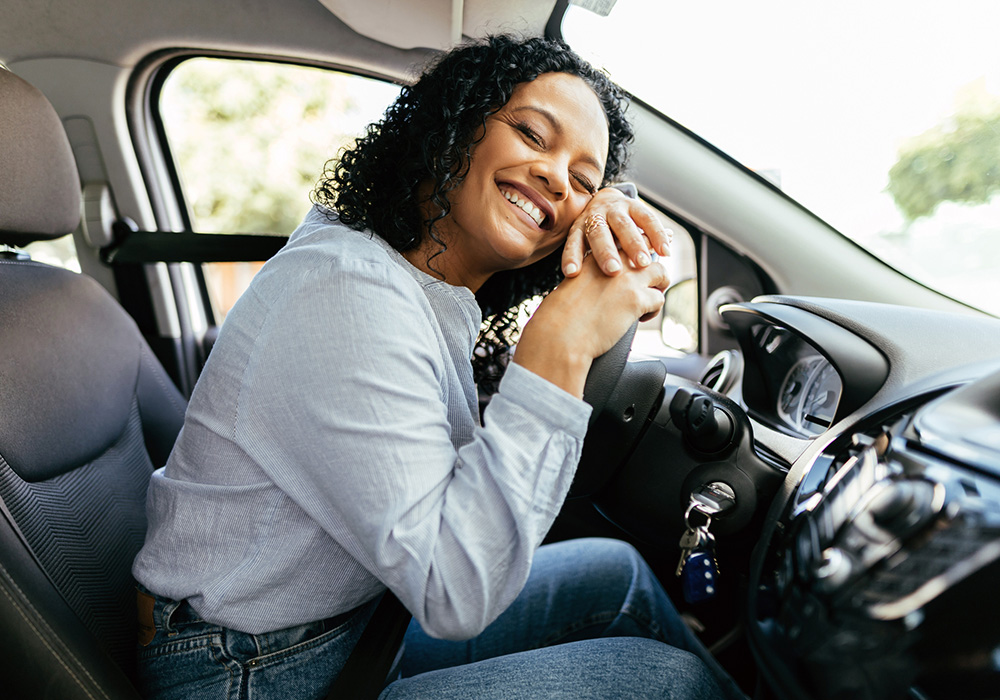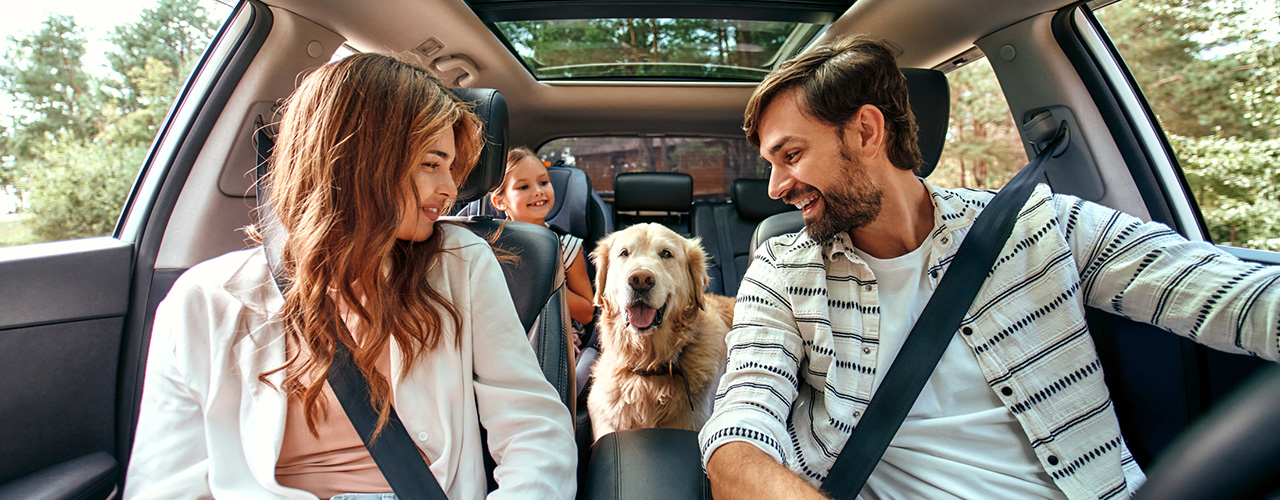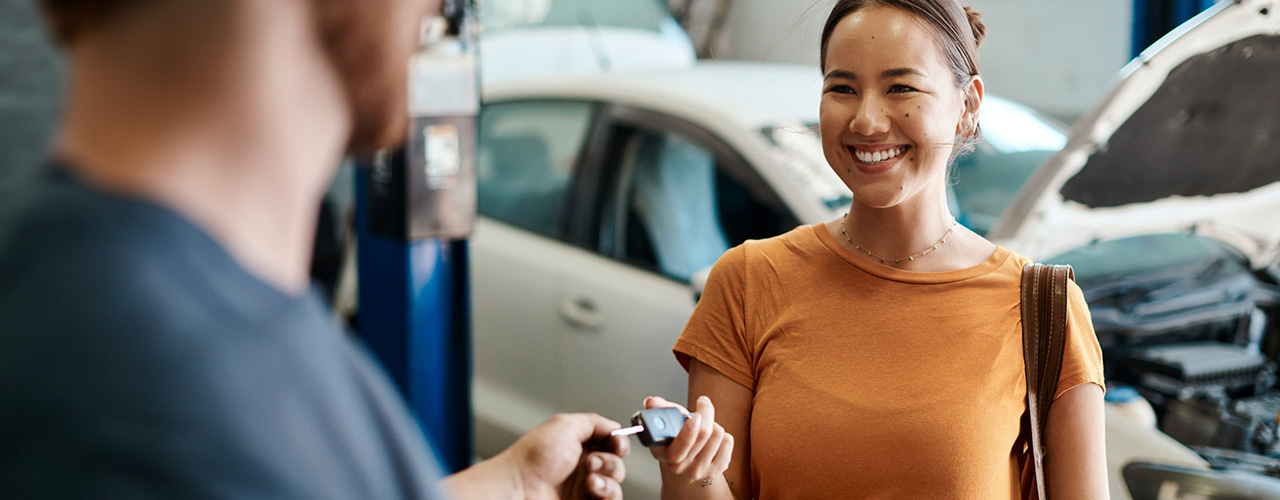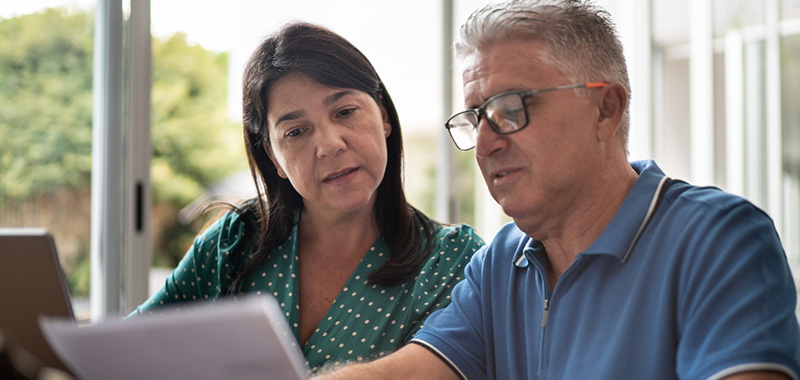GFCU Savings contact
The GFCU Savings call centre hours are open from 7:00am-7:00pm Monday to Friday and 8:00am-4:00pm on Saturday.
Local: 1-250-442-5511
Toll-free: 1-866-442-5511
Email: info@gfcu.com

Under the right circumstances, buying a car can be exciting. There are a few important things to consider when buying a car. If you're buying a used car, you don't want to end up with something broken, damaged or stolen. If you're buying a new car, you'll need to know how much you can realistically afford.
Plus, there's the whole question about leasing vs. buying a car, insuring your vehicle, and keeping up with the monthly payments that come with financing a car.
Whether you're buying new or used, leasing or buying, there are some important steps to take before signing the dotted line. We’ve prepared this guide to walk you through the process.
Know exactly what kind of car you're looking for and which model fits your needs. This means doing your research ahead of time. A few things you might want to know are:
Make and model
Typical price
Fuel efficiency
Safety features
Reliability ratings
Resale value
Once you know what you want, start shopping around. Compare prices online and call car dealerships in your area to hear about their latest offers. Don't forget to check out financing options and used options while you're at it.
Once you've narrowed down your choices, take a few test drives. This is a great way to get a feel for the cars. You may find the car you thought you wanted isn't the best option after all.

Next, you'll need to decide whether you want to buy or lease your car. Leasing a car means you're essentially renting it for a set period of time, usually two to four years. You'll make monthly payments and can buy the car at the end of your lease term, if you want.
Generally, people lease cars if:
They want to change cars every few years
They want lower upfront costs
They move often, or aren’t ready to commit to owning a vehicle
They own a business and treat the lease as a write-off
Buying a car means you'll own it outright. You'll need a down payment and enough money to cover your monthly loan payments, if you aren’t paying for the car upfront.
People usually buy a car if:
They want to own their car
They plan to drive it often (more than 20,000km per year)
They want to keep their car for a long time
Keep in mind, when leasing a car, you'll also have to pay any depreciation costs once you return the car. Depreciation costs are essentially the "damage" you've made to the car during your time using it. This can include wear and tear, kilometres driven and any harm to the exterior or interior of the car.
If you're prepared for these extra costs, leasing can be a great option. But if you plan on driving your car often, or want to own it and sell it later on, buying may be a better choice.
Now that you know which car you want, it’s time to figure out how you’ll pay for it. This includes figuring out how much you can afford and comparing financing options.
If you're buying or leasing a new car, consider all the fees associated, such as upfront payments, taxes, registration fees, gas and insurance. If you're leasing or taking out a loan, make sure you have the financial means to pay it back, as well as cover any monthly payments and interest fees.
Buying a used car in BC generally means you need to pay for the full price of the vehicle upfront. You’ll also need to pay provincial services tax (PST) on the full purchase amount. Even if you buy a new car, you’ll likely need a down payment to qualify for financing. In general, the full cost of buying a car includes:
If you don't have the cash up front, you can look into financing options from banks, credit unions and other lenders. Rates can vary widely from lender to lender, so it pays to shop around. Use this loan calculator to find out how much your monthly payments will be and how long it will take to pay off your loan.
Financing a car with Gulf & Fraser gives you access to competitive interest rates, flexible repayment options and no penalties on early payouts.
Research makes and models, prices, fuel efficiency, safety features and reliability ratings
Test drive the car and get a feel for how it drives, the interior features and how comfortable you feel in it
When choosing to lease or buy, consider factors such as how long you plan on keeping the car and how many kilometers you'll be driving it
Make sure you can afford any fees associated with buying a car, as well as monthly payments or interest if you're leasing or taking out a loan
Shop around for the best rates and terms on loans or leases before signing any paperwork

Buying a car is a big purchase. In some cases, it may be the biggest purchase you've ever made. And like any big purchase, you want to make sure you protect yourself and your money. Here are a few tips:
Have the car inspected by an independent mechanic before making a final decision. This will help prevent any surprises after you've closed the deal.
Don't be afraid to negotiate. Prices can usually be negotiated on both new and used cars.
Read all contracts carefully before signing them. This includes loan or lease agreements as well as warranties and service contracts. Make sure you understand all the terms and conditions before agreeing to them.
Keep copies of all documents related to your purchase. That way, you have a record in case something goes wrong later on.
If you’re buying a car out of province, understand inspection requirements and consider negotiating a lower price, as there may be added costs when you bring your car back home.
Budget for maintenance costs. Scheduled and unexpected maintenance can happen at any time. Build these costs into your initial budget so you’re not caught by surprise.
Most of all, be patient. A car is an exciting purchase, but take your time and make sure you're making an informed decision. Taking time to research, test and inspect your new car is the best way to buy a car you love, for life.
Looking to invest in an electric vehicle (EV)? British Columbia offers a range of rebate options for those looking to upgrade to an EV - visit BC’s Go Electric Program for the latest information.
Get a rebate of $4,000 for up to 60 EV types when you lease or buy a new EV
EVs like motorcycles and scooters, are also available for rebate through the program
Rebates of up to 50% are available to install charging stations at your home
EV drivers also qualify for high-occupancy vehicle (HOV) stickers, which let you drive in HOV lanes even if you’re only one person
Passenger fleets can apply for $3,000 in rebates for electric or hybrid vehicles. Learn more
Whether this is your first car or you're upgrading, securing financing and knowing all the details of how to buy a car in Canada will help you get the best deal.
Life gets busy, but don't let that stop you achieving your goals. Whether you’ve got $50 or $50,000, we want to help power your possible – and we'll come to you to do it.

Looking to save? Learn how to grow your money the right way with term deposits, registered plans and options for responsible investing.
The GFCU Savings call centre hours are open from 7:00am-7:00pm Monday to Friday and 8:00am-4:00pm on Saturday.
Local: 1-250-442-5511
Toll-free: 1-866-442-5511
Email: info@gfcu.com
©2025 Gulf & Fraser. All rights reserved. Gulf & Fraser and GFCU Savings are trade names of Beem Credit Union.
